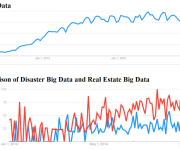How Big Data Affects Your Database Backup and Recovery Strategy
All leading cloud storage services such as ottomatik and many others have realized the impact of big data on the database backup and recovery strategies. It is because of the realization that the firms have deliberately been changing their approaches to storing client data in the recent past. However, many business owners and executives have not yet appreciated the impact of big data on their data backup and recovery strategies. Big data is poised to have a significant effect on these activities. Therefore, it is essential for business owners to understand the many ways in which big data is shaping the techniques that they use to store and recover their data.
1. Compliance
Big data is shaping the way firms comply to the existing regulations on handling data. It needs not to be mentioned that authorities across the world are keen on monitoring how small and big organizations collect, keep, and use the data of their customers. Similarly, companies are increasingly outsourcing their essential data storage services to specialized service providers. However, the emergence of big data has rekindled the interest of the authorities in the way firms, and their service providers manage the data of their clients. Therefore, companies need to use data backup strategies that follow regulations which cover the use of big data.
2. Enormous amounts of data
The concept of big data implies that firms are nowadays collecting massive amounts of data. It is now possible and necessary for companies to collect such data because they can get it. Moreover, the emergence of the discipline of data science and the practice of data-driven decision making has made it necessary for companies to use big data in their daily operations. But collecting such copious amounts of data presents a fundamental problem to firms: that of storing it. Therefore, as many companies now rely on big data, they must revise their backup methods to ensure that they use approaches that can accommodate the amount of information that they use.
3. Recovery speeds
In general, you need to consider the rate at which you can access your stored data when you need it. For some data storage methods, it is impossible to obtain data fast when you need it. However, for some techniques, you can access your stored data very efficiently. It is necessary for companies to use methods that can allow them to restore the data whenever they need it. This requirement arises from the fact that the ability of database managers to access stored data may determine the extent to which a firm faces a catastrophe. If, for example, a company suddenly loses data to a cyber attack, then the firm needs to get its backed-up data fast enough to maintain its operations. Big data is influencing the level at which firms can access their stored data. Given that companies store vast amounts of data in off-site locations, it is apparent that they cannot guarantee almost immediate access to stored data whenever a need arises. It is considering these developments that you need to consider how fast you can access your big data whenever you must get it from the offsite data storage location.
4. Exposure to risks
Usually, you must deal with all manner of risks related to sudden loss of your data. The damage may be because of a natural or humanmade catastrophe. In some cases, data losses occur because the integrity of one of the storage devices gets compromised. Thus, the extent to which you incur the damage is usually proportional to the size of data that is involved. If you have copious amounts of data, then the risks of losing it increases tremendously. In this age of big data, you must consider your data storage strategy because any slight problem in the data may result in enormous losses. This relationship between errors and the level of crisis that your business can be in are because of the way companies are now using big data.
In conclusion, big data affects the strategies that you use to back up and recover information in several ways. For example, you must now comply with the new regulations related to managing big data. also, you must consider the speed at which you can collect the data in the event of a catastrophe.
























